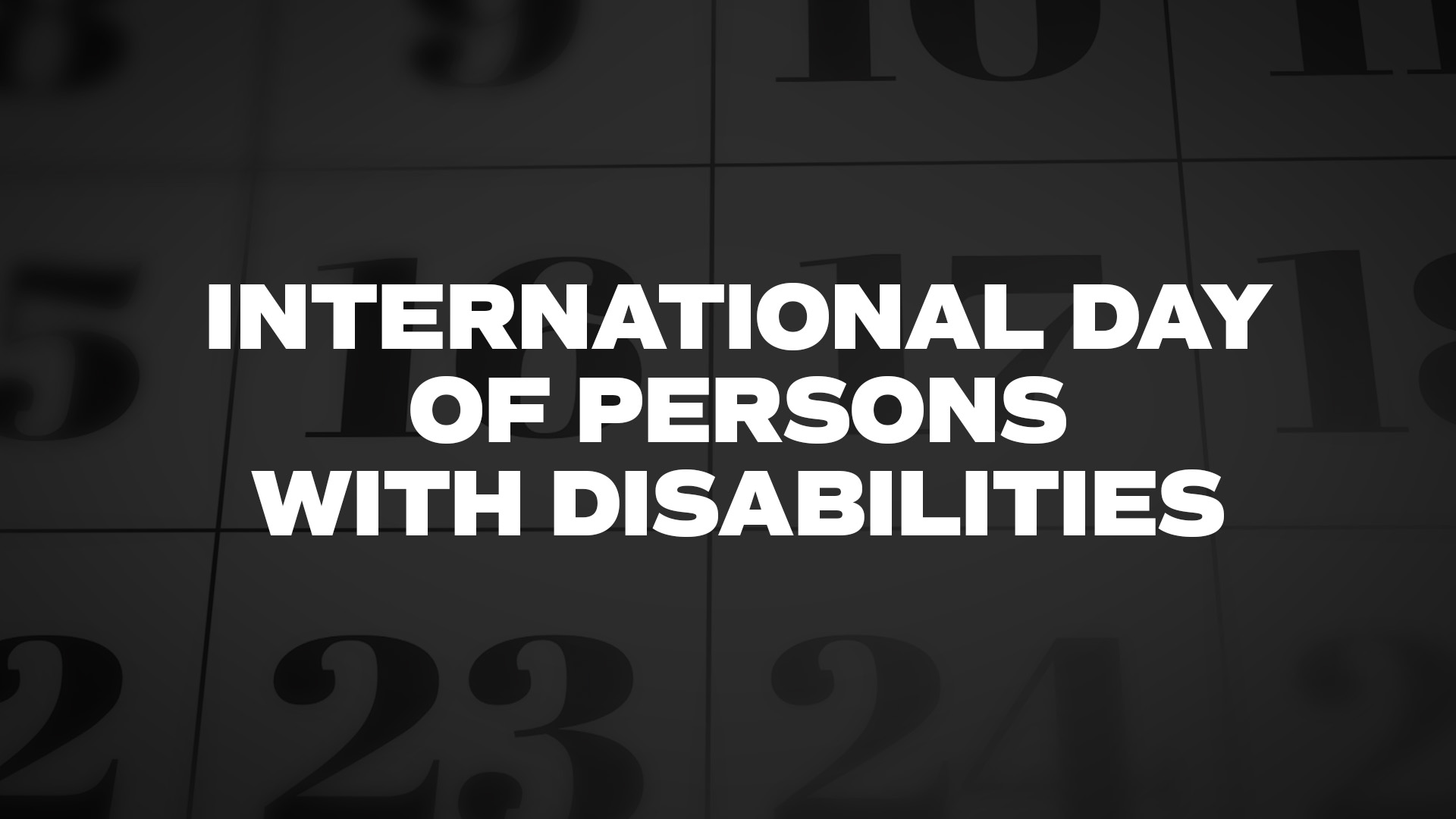International Day of Persons with Disabilities is observed on December 3rd each year to promote awareness and mobilize support for the inclusion and rights of people with disabilities. It aims to raise awareness about the challenges they face and promote their equal participation in all aspects of life.
#HASHTAGS
#InternationalDayOfPersonsWithDisabilities
International Day Of Persons With Disabilities is celebrated annually on December 3rd
| Year | Date | Day |
|---|---|---|
| 2023 | December 3 | Sunday |
| 2024 | December 3 | Tuesday |
| 2025 | December 3 | Wednesday |
| 2026 | December 3 | Thursday |
| 2027 | December 3 | Friday |
| 2028 | December 3 | Sunday |
| 2029 | December 3 | Monday |
| 2030 | December 3 | Tuesday |
| 2031 | December 3 | Wednesday |
| 2032 | December 3 | Friday |
| 2033 | December 3 | Saturday |
| 2034 | December 3 | Sunday |
| 2035 | December 3 | Monday |
